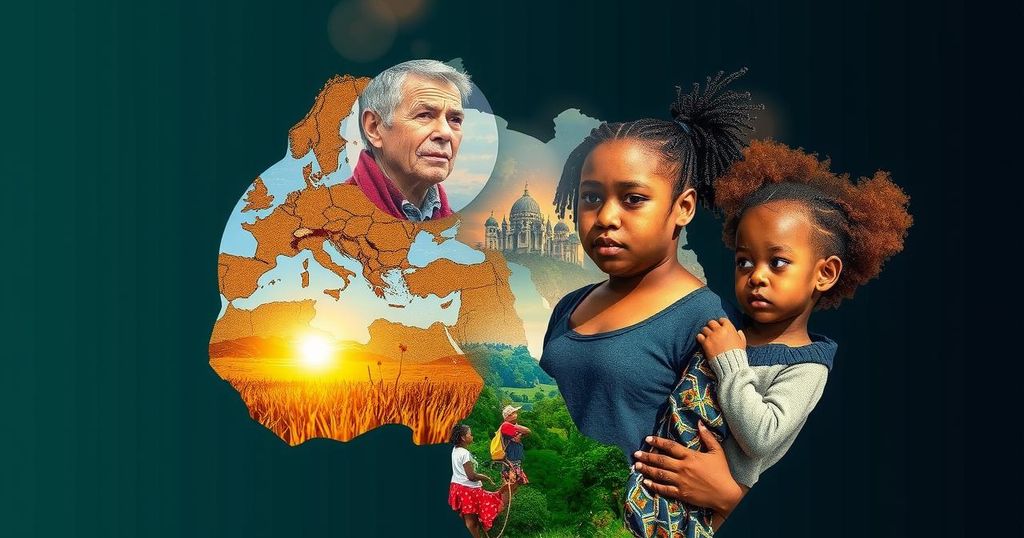The article highlights the risks posed by climate change to children in sub-Saharan Africa, emphasizing the neglect in climate financing for their needs. According to UNICEF, less than 3% of global funding is allocated to children’s climate implications. The report warns of increased exposure to extreme weather by the 2050s and underscores the need for urgent systemic changes.
Children in sub-Saharan Africa stand to bear the harshest repercussions of climate change, with inadequate support from global climate financing mechanisms. The shortcomings in access to climate-resilient infrastructure including shelter, healthcare, clean water, cooling systems, and education place these children at significant risk. Furthermore, the existing digital divide hampers their ability to acquire vital digital skills necessary for future employment opportunities.
A study by UNICEF titled “The State of the World’s Children 2024: The Future of Childhood in a Changing World” reveals startling projections, indicating that by the 2050s, children in this region are likely to face more extreme weather events, such as intense heat waves and flooding disasters. Alarmingly, UNICEF reported that less than 3 percent of global climate funding is committed to addressing the needs of children, urging immediate and increased financial support.
Catherine Russell, the UNICEF Executive Director, emphasized the urgency of proactive measures, stating that the decisions made by global leaders today will shape the world that future generations inherit. She highlighted that ongoing progress, especially regarding gender equity, is under threat due to the climate crisis.
At the recent COP29 climate conference in Baku, Azerbaijan, it was noted that over 40 million children in Africa and parts of Asia have been affected by extreme heat, resulting in their exclusion from educational environments. UNICEF’s plea at the conference called for actionable commitments, as fewer than half of national contributions effectively address the needs and rights of children.
Children from seven nations in Southern Africa, during World Children’s Day observances in Zimbabwe, jointly echoed demands for systemic changes in education that align with contemporary needs and the evolving climate challenges.
The article discusses the alarming impact of climate change on children in sub-Saharan Africa, highlighting their vulnerability and the inadequacy of current climate financing directed towards their needs. It draws attention to a UNICEF report that outlines future risks children will face due to climate-induced extreme weather conditions and emphasizes the urgent need for a more child-centric approach to climate action and funding.
In summary, the article reveals the critical vulnerability of children in sub-Saharan Africa to the effects of climate change, compounded by inadequate funding and infrastructure. The UNICEF report underscores the need for urgent global action to enhance climate resilience for this at-risk population. Additionally, it calls for a reevaluation of educational frameworks to ensure they meet the demands of a changing world, safeguarding the future of children against climate risks.
Original Source: www.chinadaily.com.cn






